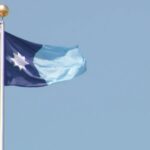Niger State Governor, Mohammed Bago, on Friday, unveiled his green economy manual before a global audience at the ongoing COP28 Climate Summit in the United Arab Emirates.
At the occasion, Bago reiterated his commitment to see Niger State take the lead in the green economy campaign in Nigeria.
PUNCH Online had reported in October that the governor convened a well-attended summit on the subject matter, which had two former military Heads of State, Ibrahim Babangida and Abdulsalami Abubakar make presentations.
According to a statement signed by the Chief Press Secretary to the governor, Bologi Ibrahim, the key mandates of the green economy initiative, as encapsulated in the blueprint document, are interwoven around five interconnected pillars.
The pillars, he said, are environmental conservation and management of carbon sink assets, sustainable resource management, renewable energy for development, inclusivity, and private sector-led job creation, especially green ones.
“Niger State aims to cultivate 250,000 hectares of land annually for sugar, sweet sorghum, cassava, and corn to produce one billion liters annually, thereby helping to significantly reduce greenhouse gas emissions,” the statement quoted Bago as saying.
He noted that to help institutionalsze these targets, he had a few weeks ago issued an executive order and approved a green economy policy.
These efforts, he added are indications of Niger State’s resolve to safeguard the environment, enhance climate resilience, and foster sustainable resource management.
Bago said this would diversify its economy, promote clean energy transition, ensure food security, and create green jobs that would empower its communities.
He further noted that the state is committed to long-term sustainability along the pathway to net zero, planning to plant one billion trees for carbon credits sequestration.
The trees, he said, would be planted on 760,000 hectares of land in the next four to five years by signing a Memorandum of Understanding with the Blue Carbon Organization under the leadership of Sheikh Ahmed Dalmook Al Maktoum.
Source: Punch
















